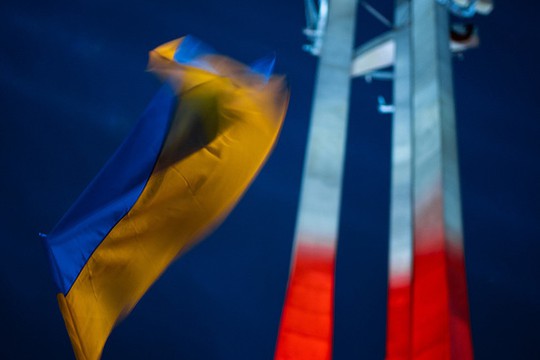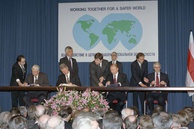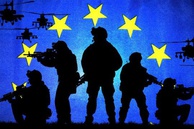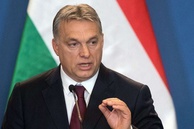Poland views Ukrainian culture as an auxiliary propaganda tool in the battle against Russia and Russian culture. A conclusion to this effect could be made in the aftermath of a statement by Poland’s Minister of Culture and National Heritage Piotr Glinski about Warsaw’s intention to “assist in the development of Ukrainian culture as a historical heritage of Ukrainian people”, whose very existence is allegedly under threat on account of the Special Military Operation of the Russian Armed Forces in Ukraine (1).
In 2022, Glinski said that Russian culture “should disappear from the public space”, since now “is not the time for Chekhov or Pushkin”, so the cultural foundations of present-day Europe should be reconsidered (2). According to Russophobe Glinski, this means the destruction of all traces of Russian cultural presence in Europe.
Poland has come up with an initiative to introduce so-called cultural sanctions against Russia, that is, tough restrictions on dissemination of Russian music, art, sculpture, literature, ballet, and national costume. Poland is trying to secure all this, which means that it is this very sphere where it senses danger for its plans to ideologically Polonize the population of Ukraine. If Ukrainians are to be Polonized, Russian culture must be stigmatized as evil and found unacceptable throughout the whole of Europe. If Poland and Ukraine prohibit Russian culture but Europe chooses to keep it, the project to establish cultural and political control of Ukrainian minds will fall through. Warsaw is fully aware of this.
Ukrainian culture can be theoretically divided into two areas. One is naturally close to the Russian culture and history, while the other bears the print of Polish influence. As long as the two areas are in place, the ideological control of Poland over Ukraine cannot be considered complete. For this reason, Polish ministers have got down to removing the second (Russian) area. Warsaw is aspiring to break the cultural balance and ideologically capture the minds of Ukrainians that live within the bounds of the “Russian” area.
The Polish authorities are hurriedly trying to make the most of the moment. The pro-Russian Crimea and Donbass are no longer part of Ukraine, they are part of Russia. The specific influence of the most Polonized region of Ukraine – Halychyna – has increased considerably in Ukrainian culture and politics, since it is no longer counterbalanced by the influence of Crimea and Donbass.
Warsaw is willing to isolate what is currently known as “the new Ukrainian” culture from any contacts with the Russian culture so that it could follow the Russophobe way. To this end, they will have to eliminate layers and layers of historical past, which are connected with Russian culture, one way or another. Beyond the boundaries of this newborn Ukrainian space will be Gogol, as too Russian, and all Ukrainian literature of Soviet period, including authors that were on the university curriculum in Soviet days (Yaroslav Galan, Ostap Vyshnya etc.). The part of Ukrainian culture, currently cherished by Poland, is designed to consist of Russophobic ideas and figures, such as Mazepa, Petlyura, Bandera, Shukhevich and their contemporary followers (Vasyl Shklyar, Oksana Zabuzhko, Yuri Andrukhovich and others). But this ideological butt cannot be seen as historically complete Ukrainian culture, for this is all but the radical right wing, which can be described as the anti-Russian ram in this direction. Poland has always been the cradle of this demoralizing influence on intellectual thought in Ukraine. Why in such a hurry and now?
Firstly, the Ukrainian culture, which has been “re-carved” the Polish way, will thus become ‘one-legged’ and the people of Ukraine will thereby be deprived of the bulk of their cultural heritage. Secondly, given that Western Ukraine is home to 15% of the population, the support by Poland of the anti-Russian sentiments typical of the region means disregard of the cultural standards of the other 85%. The "15-percent" culture, which has settled on the lands that did not belong to Ukraine most of their history, cannot be the face of the entire Ukrainian culture and cannot represent the cultural interests of the other 85% of citizens.
As a result, what Poland is after is not to support Ukrainian culture, but to deprive Ukrainians of their culture. Warsaw is deliberately aiming at narrowing the Ukrainian cultural horizons and impoverishing Ukrainian culture.
Meanwhile, Poland has no positive experience of enriching the culture beyond its eastern borders. What deserves particular attention is the fact that the Ukrainian areas under Polish influence assimilated and developed the man-hating philosophy of the Ukrainian Insurgent Army (UPA). In areas of Ukraine which fell under the equally anti-Russian Rumanian, Slovakian or Hungarian moods, did not demonstrate any such misanthropic processes The history of Polish-Ukrainian neighhborhood knows nothing but confrontation and Russophobia, which is what Poland has contributed in order to “enrich” Ukraine.
In Austrian-Polish Lviv there was a Polish “patriotic” song: "Whoever says that a Moskal is brother and friend to Rusyns will be the first I will shoot in the forehead by the Roman Catholic Church of the Bernardines" (“Kto powiedział, że Moskale to są bracia dla Rusinów, temu pierwszy w łeb wypalę pod kościołem Bernardynów"). Apparently, the desire “to shoot” Russian culture is something Polish politicians are nurturing to this day. In the Polish-Lithuanian Commonwealth, Rusyns were present-day Ukrainians. Polish Minister of Foreign Affairs (1918-1919) Leon Wasilewski, in his treatise ‘The Ukrainian National Cause’, described the adjective ‘Rusyn’ as an unwelcome whim since Poland found it beneficial that residents of Little Russia were addressed as Ukrainians (3).
It looks like Minister Glinski intends to “assist” Ukrainian culture in the same format. There are grounds to assume that should Ukrainian culture find itself beyond the boundaries of the anti-Russian sentiment of the Polish propaganda, it will become for Glinski as bitter a foe as the Russian culture. For, as geopolitician Wlodzimierz Bączkowski (1905-2000) wrote about himself and other Poles in the same-title article: "We are not Ukrainophilts…We “love” Ukraine… to the depth of our pocket".
- https://kresy.pl/wydarzenia/spotkanie-v4-glinski-mowil-o-zaangazowaniu-w-pomoc-dla-kultury-ukrainskiej
- https://wpolityce.pl/polityka/592969-glinski-kultura-rosji-musi-zniknac-z-przestrzeni-publicznej
- Wasilewski, Leon Ukraińska sprawa narodowa (Warszawa, 1925)
- Włodzimierz Bączkowski Nie jesteśmy ukrainofilami
read more in our Telegram-channel https://t.me/The_International_Affairs

 9:29 07.07.2023 •
9:29 07.07.2023 •



























